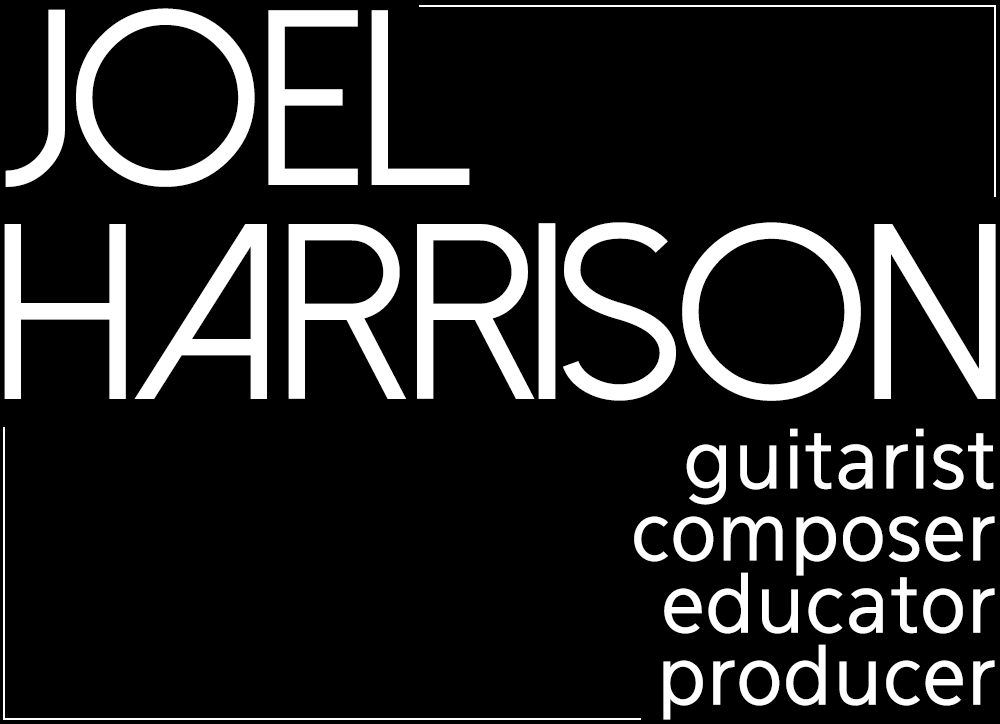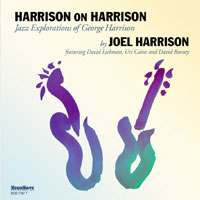Description
A singularly original journey into the music of George Harrison. His band, which includes jazz icons such as David Liebman, Uri Caine, and David Binney inhabit the arrangements with exuberance, pathos, and creativity, delighting in surprise, contrast, and exploration.
Musicians
Joel Harrison: electric, National Steel, slide and fretless guitar, voice
David Liebman: soprano, tenor saxophone, wood flute
David Binney: alto saxophone
Uri Caine: piano, Fender Rhodes
Stephan Crump: bass
Dan Weiss: drums
Todd Isler: percussion
Guest Musicians
Gary Versace: piano
Rob Burger: B3 organ
Jen Chapin: voice
PREVIEW TRACKS
Here Comes the Sun
Within You Without You
The Art of Dying
All Things Must Pass
Joel Harrison on Harrison on Harrison
In 2002 I was invited by the New York Guitar Festival to participate in a tribute to George Harrison.
I hadn’t thought much about the Beatles or George in years, but as I began to construct my ideas for the concert I became obsessed with the project all out of proportion to the short set I was asked to play. Going back through George’s catalogue to choose my repertoire was like taking a journey back into my childhood, discovering anew what it was that drew me to music in the first place. I recalled walking into Murphy’s five and dime in Washington D.C. at the age of eight and purchasing my first LP, Rubber Soul. It was a big moment. I can still see their faces peering out at me expectantly from the record bin, a sense of excitement, awe, and destiny as I scurried home with my prize. I remembered that when the Beatles came to RFK stadium that year I wrote a letter to the lads with crayons, asking them if they would like to visit my house after their concert: Dear John, Paul, George, and Ringo: I was wondering…
But this is not a Beatles tribute. We hardly need more of those! It’s focus is the intersection of my improvisational and arranging world with George’s unique compositional voice. George’s songs have enormous content, his influences ranging through country, blues, British hymns and ballads, rock and roll, gospel, psychedelia, Indian music, and early jazz. They combine aching beauty and biting wit, spiritual longing and earthy humor, simple modal vamps and sophisticated harmony, mystical ballads and bashing beats. Compared to the Lennon and McCartney songbook, some of George’s music is relatively unknown, and perhaps arcane, but his best songs rival anyone’s, and are full of hidden delights.
“Each day just goes so fast I turn around, it’s past . You don’t get time to hang a sign on me.”
“Sunrise doesn’t last all morning. A cloudburst doesn’t last all day.”
There is a lot of heart in much of his work, a sense that he is sincerely reaching for a better world, a world which we often can’t quite find. He reminds us of our transience, greed, the emptiness of much of living, and yet does so with laughter, a groove, a soaring melody, not a bunch of New Age gibberish.
1965 to 1972, the period when these songs were created, was a golden era. Artists like Coltrane, Dylan, Miles, Marvin Gaye, Joni Mitchell, and Hendrix made quantum leaps that created templates for much of what we hear today. All these artists were like George in that they broke through existing musical and social structures to create new syntheses, sounds, and perceptions that shed light on the listener. This era of visionary creativity is the touchstone of all the music I make. Similar to my previous work with Free Country (ACT 9419) I have tried to combine simple, direct song forms with more mysterious and abstract improvisational language, never losing the soul of the song, reconstructing the tunes in my own image until they almost feel like my own compositions.

